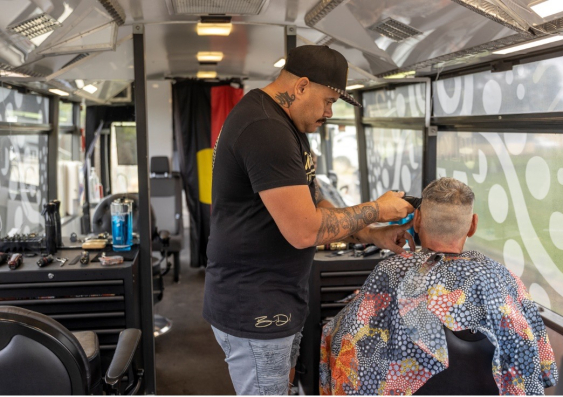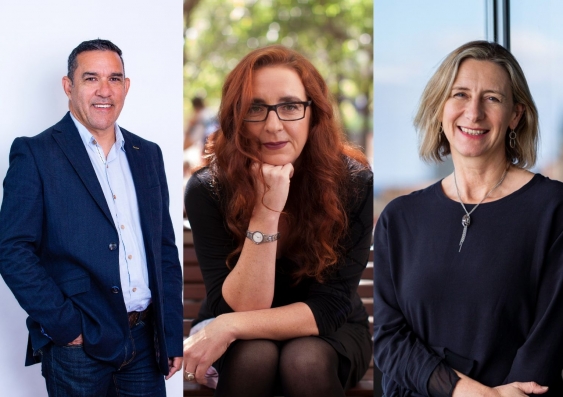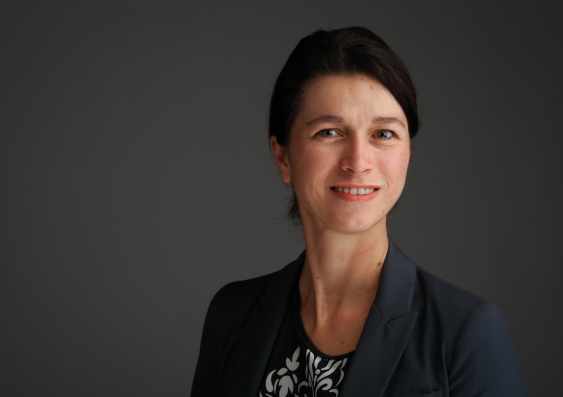UNSW Kirby Institute’s remote testing program wins major university award
2025-02-25T21:00:00+11:00

Dr Louise Causer is a medical epidemiologist and one of the lead researchers implementing the First Nations Molecular Point-of-Care Testing Program at the Kirby Institute.
Photo: The Kirby Institute
The point-of-care testing program operates in over 100 remote communities and is estimated to have saved Australia’s healthcare system up to $1.8 billion.
An infectious disease testing program developed by UNSW Sydney’s Kirby Institute has won the Community Champion award at the .
The First Nations Molecular Point-of-Care (POC) Testing Program has been instrumental in reducing the spread of sexually transmitted infections (STIs) and COVID-19 in remote communities.
Announced by Universities Australia on Tuesday night, the Shaping Australia Awards honour university-led innovations in research, teaching and community service.
First Nations communities living in remote areas experience some of the highest rates of infections in Australia, including STIs. Access to timely healthcare in these regions is a challenge, and can lead to delayed diagnosis and treatment for infections.
“There are a range of complex factors that impact sexual health in remote communities, including health service capacity, population mobility, and social and cultural factors around shame and stigma,” Robert Monaghan, Manager of Yandamanjang, First Nations Health Research program at the Kirby Institute said.
“A big contributing factor is the often-huge geographical distances between health services and laboratories, which can mean that when someone does attend a clinic for a test, it can take days or weeks for a result to be returned to the patient and if needed, treatment provided.”
In partnership with Flinders University, a team led by the Kirby Institute’s Professor Rebecca Guy developed the highly accurate First Nations Molecular Point-of-Care (POC) Testing Program to provide same-day results.
Since its 2013 launch, the program is estimated from modelling to have led to reductions in the risk of both pelvic inflammatory disease and preterm births among young First Nations women.
The program operates in over 100 remote communities and helps prevent serious complications from untreated STIs like infertility. More than 60,000 tests have been conducted, and 9000 infections treated.
UNSW Vice-Chancellor and President Professor Attila Brungs congratulated the researchers behind the program.
“I’m truly inspired by the dedication of the researchers who have developed this program,” he said.
“Tens of thousands of tests have been conducted since this program was launched more than a decade ago, leading to better treatment and health outcomes for people in remote communities suffering from infectious diseases.
“It’s undeniable that the POC Testing Program has changed thousands of lives for the better, and I’m very proud of our researchers at UNSW’s Kirby Institute who are helping to make this positive impact.”
A Medicare rebate was approved in the 2024 budget for the tests, marking a historic policy achievement. The rebate will provide a sustainable, enduring model to support remote health services to offer timely tests for STIs.
In addition to providing a direct service, the POC testing network has enabled remote First Nations communities to reduce their reliance on external and distant laboratories. It’s also created new opportunities for community members to be trained in the POC technology in their own clinics.
“The team working on the First Nations Molecular Point-of-Care Testing Program are incredibly committed to community empowerment and have forged strong and effective partnerships with First Nations health services to delivery this transformative program,” said Scientia Professor Tony Kelleher, Director of the Kirby Institute.
Ms Lisa Paul AO PSM, chair of the Shaping Australia Awards judging panel, congratulated the winners and finalists for driving such important and inspiring initiatives.
“The judging panel had the privilege to learn about and fully appreciate the ways Australia’s universities are shaping our country’s future,” Ms Paul said.
All six winning projects, including the Problem Solver and Future Builder award can be found at the .
Media enquiries
For enquiries about this story, please contact Julia Holman.
Tel: +61 435 124 673
Email: j.holman@unsw.edu.au






